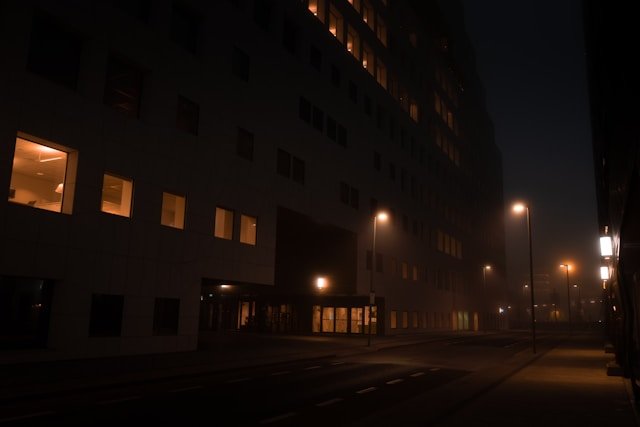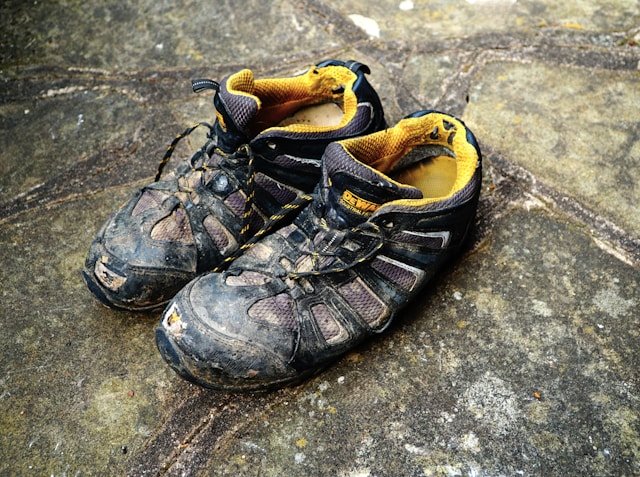A short story –
The door creaked open with a sound that felt like a sigh.
Elliot hadn’t stepped into his mother’s house in over four years.
He paused at the threshold, staring into the quiet that met him like an old friend wearing grief.
The living room still smelled of cinnamon and old paper.
The curtains were drawn halfway, allowing thin, lazy sunbeams to scatter dust across the floor like golden snow.
Nothing had changed.
And that, somehow, made everything worse.
His polished shoes echoed across the wooden floor as he walked toward the kitchen. It was habit, not memory, that pulled him there.
And there it was.
The table.
That same oval table with its faint water stains and one leg slightly shorter than the rest. Four chairs surrounded it, just like always. But it was the last one—the one closest to the back window—that stopped Elliot in his tracks.
His chair.
The cushion still flattened, worn at the edges, with a thread coming loose from the corner.
He pulled it out gently and sat.
The wood creaked beneath him, the way it always had when he was younger, always shifting in his seat, impatient, eager to leave.
But now…
Now the chair held him like a memory he couldn’t outrun.
…
On the table sat a cup.
Chipped. Floral. Familiar.
Elliot picked it up, smelled the faint trace of peppermint.
She must’ve used it often. Maybe even yesterday. He blinked.
No.
Not yesterday.
Not anymore.
She had passed in her sleep. Peacefully, the doctor said.
But Elliot’s chest burned with guilt—not just for her death, but for all the days he had chosen work over weekends, meetings over phone calls, silence over small talk.
He could still hear her voice:
“It’s alright, love. I know you’re busy. I’m proud of you.”
She always said that. Even when her voice trembled.
He looked around. The kitchen clock ticked softly.
Time was still moving.
It hadn’t waited for him.
…
He stood, suddenly uneasy. The chair scraped against the floor.
Something crinkled beneath it.
He reached down and felt beneath the seat cushion. A folded envelope—yellowed and worn—tucked in a plastic sleeve. It was labeled in her unmistakable handwriting:
“To my son, whenever he finds it.”
His heart clenched. There were more. Dozens, maybe thirty or forty, stacked beneath the fabric.
He opened one with shaking hands.
“Dear Elliot,
You left in such a rush this time. I didn’t get to tell you that the lilies bloomed today. Your dad used to say they looked like open hands reaching toward heaven…”
He opened another.
“…I saw your picture in the paper again. You looked so sharp. So distant. I wonder if you eat well. I wonder if your suits are comfortable. I wonder if you know I still set your place at the table sometimes…”
And another.
“…The house creaks more at night now. I think it’s lonely. Or maybe it’s just me. I made your favorite soup last week. I left some out for you, just in case.”
Elliot pressed the paper to his lips, unable to breathe.
Her voice was here. In every word. Every loop of ink.
Not desperate—just patient. Endlessly, painfully patient.
…
He sat again, slower this time.
The chair didn’t creak this time—it sighed.
Like it had waited for him.
Like she had.
He stayed for hours.
He read every letter. He wept openly, the way he never had before.
He noticed the softness in her handwriting fading year by year.
He noticed how her words grew shorter.
How they never grew colder.
The final letter was dated just a week before she passed.
“Dear Elliot,
Today I looked out the window and the birds were singing again. The same kind of morning you used to love when you were small. I imagined you were sitting here beside me. You were smiling. That’s how I’ll remember you. Not the suit, not the emails. Just you, eating toast and humming without knowing it.
I love you. Come home soon, even if just in your heart.”
He closed his eyes.
For the first time in years, he felt small.
And seen.
And unforgivably late.
He returned every Sunday.
Alone.
He’d make tea in the chipped cup. Sit in the same chair.
Sometimes he’d whisper to her. Sometimes he’d just listen.
The last chair at the table no longer creaked.
It held him, as if to say:
“It’s alright, love. I knew you’d come back.”
…
More Stories:
The Tears Behind The Walls
A Short Story – The smell of disinfectant still clung to Dr. Arga’s hands. His…
The Secret Behind a Mother’s Pain That Every Child Should Know
A Short Story – The sound of scraping soles followed them down the narrow street….
Perfect Timing, Mom
A Short Story – Brian, a student known for being shy and not very good…
Strangers in The Night That Change The Life
A Short Story – Adam sat alone beside a small kebab stand on the side…
Some Things Take Time to Bloom
A Short Story – The soft morning sunlight shone gently on the first day of…
One Last Ride – The Price of Speed
A short story – The motorcycle engine roared like an angry beast chasing its prey….





